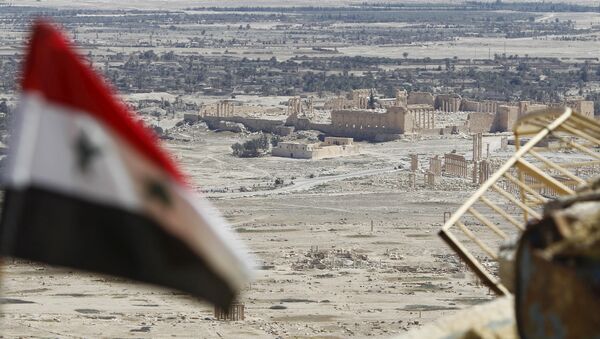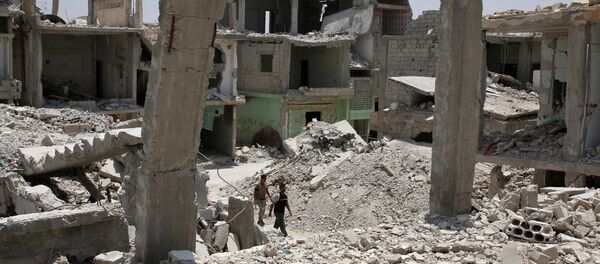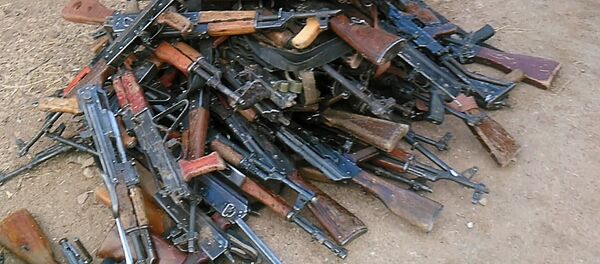"According to the agreements, today, on August 3 at noon local time the units of military opposition and divisions of the Syrian government troops are fully ceasing fire from all types of weapons," Konashenkov said.
He further said that the Russian military police would set up on August 4 two border checkpoints and three observation posts in Syria’s Homs de-escalation zone.
The spokesman added that 84 settlements with a population of more than 147,000 people were in the zone.
A senior researcher of Arab and Islamic Studies of the Institute of Oriental Studies at the Russian Academy of Sciences, Boris Dolgov, said on Radio Sputnik that the creation of de-escalation zones in Syria is a positive trend, but also includes certain risks.
“It should be noted that the very trend of creating de-escalation zones in Syria is a positive moment, especially in Homs which is an industrial and densely populated area. However, here it must be said that the de-escalation zones are actually turning into autonomous regions, creating their own authority, sometimes separated from the central one. It even creates isolated military formations, which, if the conflict continues, could lead to a split in Syria,” Dolgov said.
“Here I will recall the statements that were made by the US side, in which it was stated that they are not going to transfer the zones of de-escalation to the control of the Damascus government, after these zones are created,” Dolgov said.
Nevertheless, he said that despite the presence of these risks, negotiations on the creation of de-escalation zones should certainly continue.
“The success of these talks, first of all, lies in stopping the military actions and in curtailing the suffering of the peaceful population,” the analyst concluded.
According to Konashenkov, the Committee of National Justice, including representatives of the opposition and major ethnic, political and religious groups, will be set up in the Homs de-escalation zone to ensure its effectiveness.
Konashenkov also stressed that the cease-fire regime in the Homs zone, as in the other two zones, does not cover the militants of the Jabhat Fatah al Sham, formerly known as Nusra Front and Islamic State (both terrorist groups are banned in Russia).
The spokesman added that in accordance with the reached agreements, the moderate opposition took a commitment to push out from the zone all the units that have joined the aforementioned terrorist groups.




